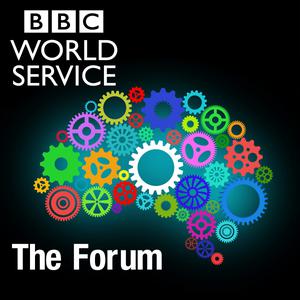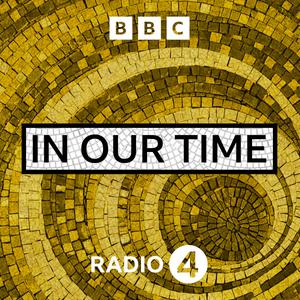
Everyday Ethics
BBC
Provocative weekly debate on moral, religious and ethical issues. From BBC Radio Ulster
- 29 minutes 9 secondsResetting the Male Mindset - Will a Police Plan Bring Change?
This week the PSNI laid down a challenge to men and boys everywhere. Check your behaviour towards women and girls. Step away from negative attitudes. Challenge your mates. And have the confidence to step in safely and put a stop to potentially abusive behaviour. The Power to Change campaign comes as figures show that between January 2019 and December 2024, thirty two women and girls were killed by men. And there were 92 attempted murders from December 2018 to November '24. In the Republic, 1,250 attacks in the home were reported every week last year. Will initiatives such as this PSNI plan bring real difference over time? Presenter Audrey Carville in conversation with Kerrie Flood, CEO of Fermanagh Women's Aid, Wicklow secondary school teacher Eoghan Cleary and journalist Amanda Ferguson.
31 January 2025, 1:54 pm - 14 minutes 6 secondsFinding truth in a murky world of media
The past week saw an extraordinary admission from a major media company. News Group Newspapers, owned by Rupert Murdoch's NewsCorp, admitted that one of its papers- had been involved in incidents of unlawful activity. This related to its intrusion into the life of Prince Harry and took place over a period of 15 years from 1996. News Group also apologised to the Prince. It said it was private investigators rather than its journalists who were involved. The impact of this on journalists of long standing, working for media with strong reputations, will surely reinforce the mistrust that increasing numbers have in journalism. And yet with increasing numbers getting their news on social media sites- much of which is unchecked, and in some cases deliberately false, why are these platforms trusted more? Presenter Audrey Carville in conversation with Paul Tweed, a lawyer specialising in defamation and by former BBC journalist and editor Mihir Bose.
26 January 2025, 9:42 am - 27 minutes 49 secondsDonald Trump - how will govern the United States of America for the next four years?
So much has been written and said about Mr Trump and how he will govern the country for the next four years.
We brought together four people - Corina Lacatus from Queen Mary University in London, Julie Norman from University College London, Jane Kinninmont from the European Leadership Network and former US Secret Service Agent Barry DonAdio
19 January 2025, 10:00 am - 25 minutes 25 secondsAll the US Presidents - the best and the worst of them
On January 9, the man who has been described as the best post-presidency President was laid to rest. Jimmy Carter died last month at the age of 100. He served as 39th president of the United States from 1977-1981. On the twentieth of this month Donald Trump will be sworn in as the country's 47th President. So from George Washington to Mr Trump, who has been the greatest President of all time? Presenter Audrey Carville in conversation with Dr Sarah Thelan who teaches 20th Century US political and cultural history at University College Cork, Denman professor of American History at the University of Texas Catherine Clinton and journalist, author and former long time pundit for Fox News, Cal Thomas.
12 January 2025, 9:15 am - More Episodes? Get the App
Your feedback is valuable to us. Should you encounter any bugs, glitches, lack of functionality or other problems, please email us on [email protected] or join Moon.FM Telegram Group where you can talk directly to the dev team who are happy to answer any queries.
 The Forum
The Forum
 A Point of View
A Point of View
 Comedy of the Week
Comedy of the Week
 Moral Maze
Moral Maze
 All in the Mind
All in the Mind
 In Our Time
In Our Time